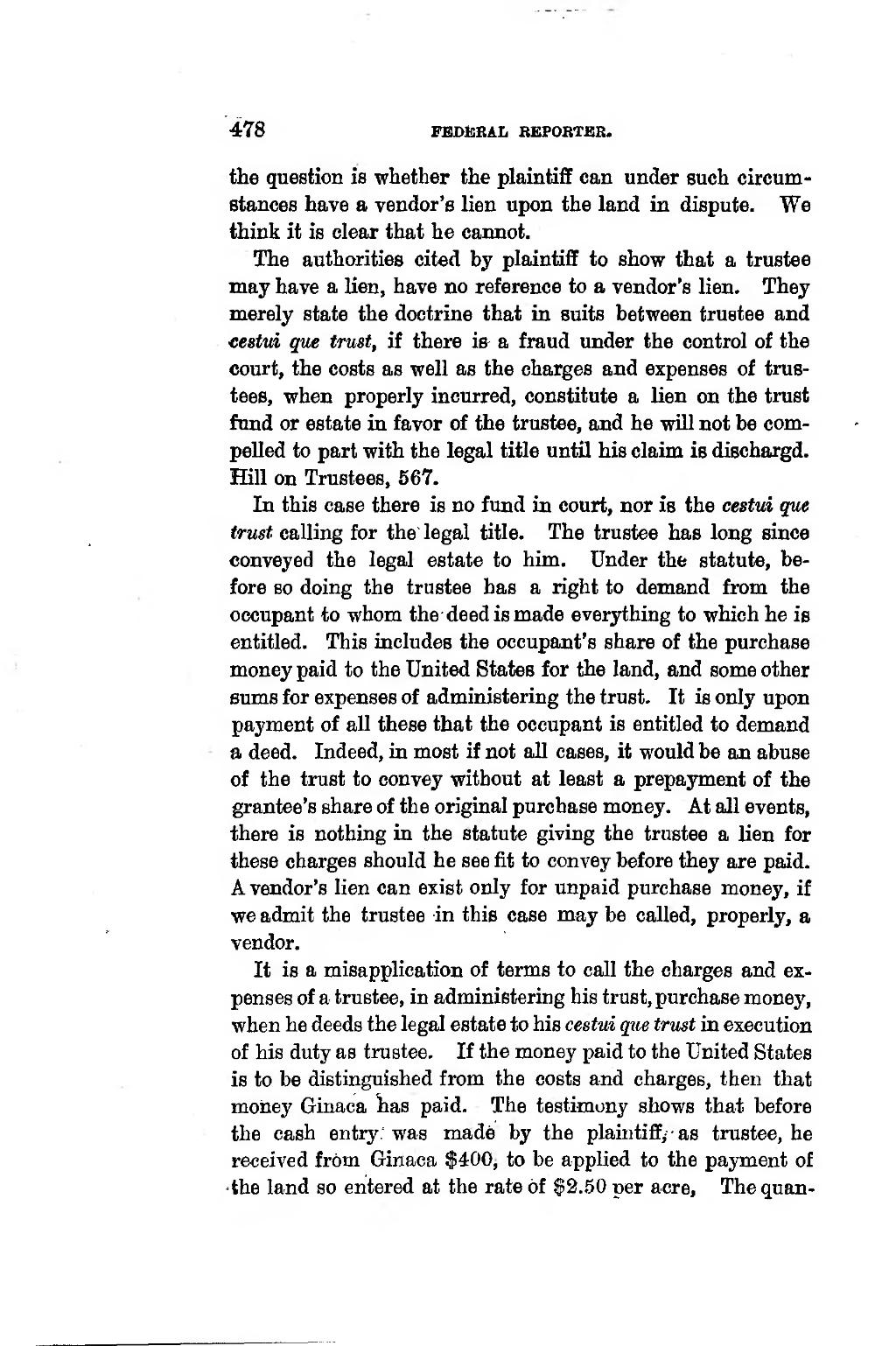478 PEDteRAL BEPOETEE. �the question is whether the plaintiff can under such circum- stances have a vendor's lien upon the land in dispute. We think it is clear that he cannot. �The authorities cited by plaintiflf to show that a trustee may have a lien, have no reference to a vendor's lien. They merely state the doctrine that in suits between trustee and cestui que trust, if there is^ a fraud under the control of the court, the costs as well as the charges and expenses of trus- tees, whan properly incurred, constitute a lien on the trust fund or estate in favor of the trustee, and he will not be com- pelled to part with the legal title until his claim is dischargd. mil on Trustees, 567. �In this case there is no fund in court, nor is the cestui que trust calling for the legal title. The trustee bas long since conveyed the legal estate to him. Under the statute, be- fore 80 doing the trustee bas a right to demand from the occupant to whom the deed is made everything to which he is entitled. This includes the occupant's share of the purchase money paid to the United States for the land, and some other sums for expenses of administering the trust. It is only upon payment of ail these that the occupant is entitled to demand a deed. Indeed, in most if not ail cases, it -would be an abuse of the trust to convey without at least a prepayment of the grantee's share of the original purchase money. At ail events, there is nothing in the statute giving the trustee a lien for these charges should he see fit to convey before they are paid. A vendor's lien can exist only for unpaid purchase money, if we admit the trustee in this case may be called, properly, a vendor. �It is a misapplication of terms to call the charges and ex- penses of a trustee, in administering his trust, purchase money, when he deeds the legal estate to his cestui que trust in execution of his duty as trustee. If the money paid to the United States is to be distinguished from the costs and charges, then that money Ginaca bas paid. The testimuny shows that before the cash entry; was made by the plaintiff/- as trustee, he received from Ginaca $400^ to be applied to the payment of the land so entered at the rate of $2.50 per acre, The quan- ����
